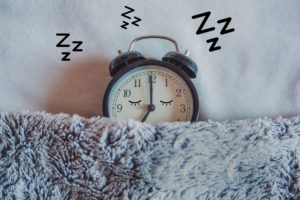 Getting Healthy Sleep
Getting Healthy Sleep
Getting a good night’s rest under stressful conditions is hard enough but what about during a pandemic? It could be difficult.
Stress-related insomnia due to the COVID-19 pandemic is a thing and it’s more complicated than typical stressed related sleeplessness. Because it’s not just about the virus; it is also about everything else that’s changed because of the virus.
From loneliness to economic hardships to juggling work and homeschooling, there are many factors that have caused us stress. Loss of sleep can have a negative effect on your overall health.
The pandemic
Not only is the pandemic a giant stressor for many people but it’s also created a new level of uncertainty for many. The pandemic has changed daily routines drastically.
Being home can cause complications in sleeping patterns. Sunlight and exposure help keep our circadian rhythm on schedule. With work-from-home situations, some people might have different hours and sleep in. This can cause more complications for the next night’s sleep.
The impact on your health
Lack of sleep and stress can have a negative impact on your overall health. It can affect our immune system. If a person is sleep- deprived they have lowered immunity and could make them more susceptible to viruses.
A lack of sleep also has a negative impact on our emotional regulation and mood. The rest of the body can suffer from loss of sleep, leading to issues with worsening cardiovascular and metabolic issues, including an increased risk of weight gain, diabetes and high blood pressure.
How can you combat the pandemic stress?
There are a number of ways we can improve our sleep.
Take a break from the news
To say there’s a lot happening in the world these days is an enormous understatement. And while it’s good to stay informed throughout the day, try to avoid oversaturation of news and other bad habits like “doom scrolling.” This is important in the evening.
People are connected to the news and watch before bedtime. This is setting one up to having worries, those anxieties at night.
Stay on schedule
Stress can come from an upending of our daily routines. You can get some relief by creating a daily schedule and routine and sticking to it.
Shine a light
Making sure you get enough light exposure in the morning is an underrated part of our circadian rhythm and one that many people are missing with new morning work routines. Many of us aren’t going outside at all in the morning, moving from bedroom to computer to start our workday or to help kids get ready for virtual school. The impact from these can negatively impact sleep.
Skip the naps
Naps can be a good way to recoup some energy, especially if you work from home and can easily slide from office space to the couch or bed. It’s all about moderation. A short nap can be helpful for some while naps later can disrupt sleep.
Get up and distract yourself
One problem that might come up, particularly during times of stress and stress dreams, is waking up in the middle of the night and not being able to fall back asleep. Not only does it mean less sleep, it also probably means more frustration.
If you haven’t fallen asleep after 20 minutes, consider getting up and going to a different room. Distracting yourself, in the form of reading, yoga or relaxing hobby can help.
By going to a different room, you can keep it- in your mind- as a place of peace and relaxation and not associated with the annoyance of interrupted sleep.
Just avoid too much stimulation, especially from your phone, tablet or computer. Whether it’s doom scrolling on social media or the aforementioned blue light, those devices will do more harm than good in this situation.
Avoid clock anxiety
You know the feeling: you wake up in the middle of the night, check your clock and then proceed to stress out about the need to fall back asleep but that stress just keeps you up instead.
Trying not to stress in that situation is easier said than done but there are options in terms of relaxation that would make it easier. Meditation, guided imagery and progressive muscle relaxation can go a long way in helping you fall asleep.
Sleep aids
If you’ve been lacking sleep for several nights in a row, it might be tempting to use over-the-counter sleep aid to ensure sleep. You do not want to rely on it regularly.
Using a sleep aid, can make people feel drowsy in the morning until the medication wears off. Another issue is that sleep aids might lose effectiveness. People that use them regularly tend to develop a tolerance.
Melatonin
If you have insomnia, you may be tempted to try out melatonin as natural option. While a person may see improved results, immediate sleep aid is not the supplement’s primary purpose.
Effectiveness of melatonin is not for people who have insomnia. It’s for people who have circadian rhythm disruption. If taking melatonin, it’s important to take the correct dose.




